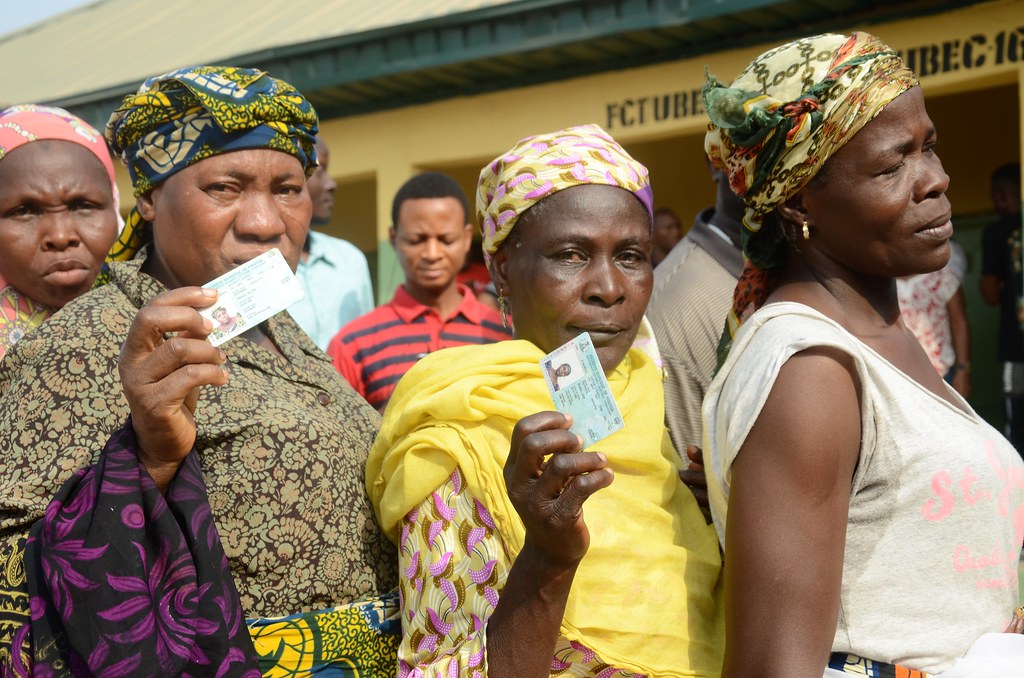Now that Nigeria knows the dates of its 2023 general elections and the key names that will feature on the presidential ballot, the countdown is well and truly underway. The presidential and legislative votes will be held on 25 February and governorship and other sub-national elections on 11 March.
These elections, the seventh since Nigeria’s return to multi-party democracy in 1999, will be conducted under a new electoral framework. The campaigning period will now last 150 days, rather than 90. New technologies will be employed in the transmission of results that should help eliminate irregularities and increase transparency. And the Independent National Electoral Commission (INEC) will have greater powers to investigate allegations of results being tallied under duress or financial inducements.
The new electoral act also increases campaign finance limits for presidential candidates from N1 billion ($2.4 million) to N5 billion ($12 million). Without measures to improve scrutiny of these ceilings, however, they are still likely to be exceeded.
Presidential aspirants
The main opposition People’s Democratic Party (PDP) held its convention in late-May. As in 2019, party delegates again selected Atiku Abubakar to be the party’s presidential aspirant. The 75-year-old former vice-president won out of pool of over ten candidates and was aided by the late withdrawal of Sokoto Governor Aminu Tambuwal who called on his supporters to switch their votes to Atiku.
The ruling All Progressives Congress (APC) has just concluded its own convention to select its presidential flag-bearer. The incumbent President Muhammadu Buhari is about to complete his second term and is thus ineligible to run again. In the contest, APC delegates picked Bola Tinubu from an initial field of 28 candidates, each of whom paid N100 million ($240,000) just to purchase party nomination forms. The 70-year-old former Lagos State governor similarly benefited from several nominees – such as Ekiti State governor Kayode Fayemi and former Ogun State governor Ibikunle Amosun – stepping down and offering him their bloc votes.
Once again, money played a huge role in these selection processes in both the presidential and governorship contests. Delegates reportedly received large sums of money or gifts worth up to ten thousand dollars, and some unsuccessful hopefuls even sought refunds from delegates when votes did not go their way.
The PDP’s Atiku and the APC’s Tinubu are both well-known political veterans in Nigeria and have, in fact, been allies at various stages in the past. In 2007, Tinubu successfully convinced Atiku to run as the presidential candidate for his Action Congress party. Later, in the run-up to the 2015 elections, the two men collaborated again to help build the APC as a powerful opposition coalition.
Both figures also have the significant war chests, networks, name recognition, and national reach needed to do well in an election. Atiku is particularly popular in the north, though his candidacy contravenes the unwritten rule that the presidency should rotate between the North and South of the country. Meanwhile, Tinubu has more national appeal, but the fact he will likely run on a ticket with two Muslims – he will have to pick a running mate from the Muslim north – might lose him votes in the South.
Beyond this arithmetic, one great unknown is how the 60% of Nigeria’s population under the age of 25 will receive their candidacies. There is a widening generational divide between young people and the older generation, as exemplified by the enormous #EndSARS protests in October 2020. Youth turnout may end up being key to the outcome of the election.
Another complicating factor could come from candidates from smaller parties. For instance, former Anambra State governor Peter Obi, who withdrew from the PDP primary, plans to run as the Labour Party flagbearer. And former Kano State governor Rabiu Musa Kwankwaso intends to contest as the New Nigeria Peoples Party’s (NNPP) candidate. Obi, 60, has a popular online following. Kwankwanso, 65, enjoys a significant youth support in northern Nigeria. They are both influential figures and their influence will be all the stronger if they combine forces in a joint ticket. There is plenty of time for this possibility to be worked out, and the Peoples Redemption Party, NNPP, National Rescue Movement (NRM), and Nigeria Labour Congress have already agreed to an alliance in principle under the banner of the Labour Party.
Challenges ahead
The 2023 elections will be conducted against the backdrop of complex insecurity. The threat from Boko Haram, which defined the 2015 election, is yet to be quelled in the northeast; bandits are operating across the northwest; a violent secessionist agitation is spiralling in the southeast; and farmer-herder clashes are ongoing across the country. The 5 June killings of over 50 people in the relatively stable Ondo state was a stark reminder of the insecurity challenges facing Nigeria and its upcoming elections.
This will be one issue concerning INEC chair Mahmood Yakubu, but far from the only one. While he has done well to build on the successes of his predecessor by adopting innovations and consulting with key stakeholders, Nigeria’s zero-sum political game in which desperate and disparate actors set out to win at all costs will pose a sizeable threat to the election’s integrity. The forthcoming governorship elections in Ekiti and Osun states – on 18 June and 16 July respectively – will be a good measure of what to expect in 2023.
One particularly tricky challenge arises from the prevalence of misinformation. Nigerian politics has been marred by the dissemination of fake news in recent years. During the APC primaries, for instance, there was a flurry of false reports of candidates withdrawing or endorsing other hopefuls.
Voter turnout is another concern. In 2019, just 35.7% of eligible Nigerians voted. This trend could be repeated in 2023 due to prevailing insecurity, unpopular candidates, and the likely misinformation aimed to suppress certain voters. Such a low turnout would undermine the credibility and perceived legitimacy of the process.
Nigeria may be experiencing its longest run of uninterrupted multi-party democracy, but that says little of its quality.






